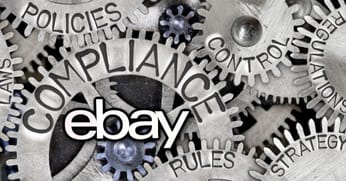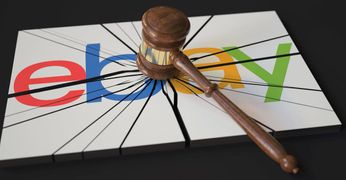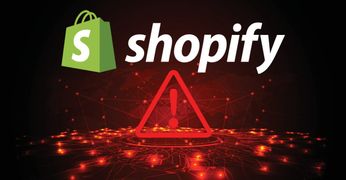eBay Explores Blockchain Solutions To Fight Fraud & Scams In New Patent Filing
eBay may be exploring ways to use blockchain technology to fight fraud and scams on the platform with transparent, decentralized user authentication and authorization, according to a new patent being sought by the company.
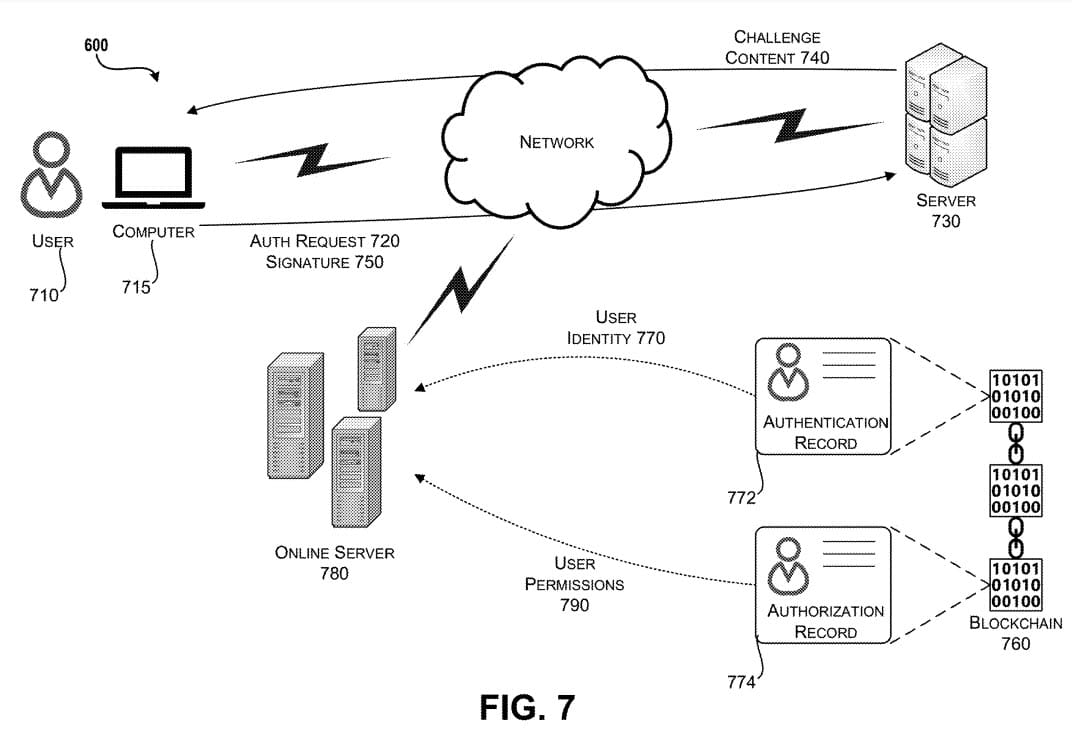
The filing explains that historically, online transactions have relied on "centralized authorities" (ie marketplaces like eBay) to provide verification, guarantees, and reputational ratings but that those centralized methods can be "opaque to other users" or the marketplace authority may provide data or conclusions that are biased, unfair or incorrect.
One way to establish trust is by use of a central authority such as a marketplace that provides verifications and guarantees. Reputation ratings, which may also be maintained by a central authority, can provide another source of trust. Parties with good reputations based on past interactions may be viewed as more trustworthy than parties with low ratings or parties with no history...
...Authentication and authorization of users with respect to permissions granted by a central authority may be opaque to other users. There may be situations in which the user is reluctant to extend trust to another user based only on assurances provided by a central authority. The data or conclusions provided by the central authority may be incorrect or they may even be biased and unfair (e.g., overly negative or overly positive).
For example, eBay's current feedback system for buyers and sellers is often viewed with skepticism on both sides of the marketplace as buyers can use negative feedback to manipulate sellers into providing refunds and some sellers are able to get vast amounts of negative feedback scrubbed from their record - like the great Reebok feedback fiasco in 2019.
Given those challenges and limitations of "central authorities", eBay is envisioning a system that would give users ownership or control over a specific blockchain address using a private key, which once linked to a user account, can be used for authentication.
On the authorization side, ownership of a blockchain address would serve as a digital signature, allowing the user to “sign for transactions.”
This system would record things like purchase history, sales history and payment history and users may be leary of plans to use the blockchain to track their “reputational score,” which could determine whether they can buy, bid on or sell items and can fluctuate based on transaction behavior recorded on the blockchain.
The reputational score or ranking of a user may be one characteristic that is used to authorize one or more functions or activities. For example, a reputational score above a threshold level (e.g., four or more stars out on a five-star scale) may be required to participate in certain transactions such as bidding on an item or requesting a refund...
...the reputational score for a user may be used to generate a “buying license” that permits the user to buy or bid on certain items from transactional sites or online auctions.
A buying license may include a reputational score. The reputational score for a user may increase or decrease based on transaction behavior recorded in the blockchain. If the reputational score decreases below a threshold level, the user may be prohibited from engaging in certain actions such as buying or selling items.
Using the reputational, bad actors can be identified and the immutability of records contained in the blockchain will make it difficult for those actors to distance themselves from their past behavior...
...information may be recorded in a blockchain other than transaction records to enable determination of the identity or trustworthiness of a user.
For example, buying habits, browser fingerprints, Internet protocol (IP) addresses of devices used, a username, an email address, a phone number, a physical address, and the like may be stored in a blockchain association with a user identity.
The potential of blockchain technology could certainly help clean up some of eBay's long-standing fraud problems - particularly those which rely on using compromised or fake accounts with stolen identity information, like this recently uncovered $2 Million+ triangulation scheme.

It could also help eBay track and take action against repeat offenders who attempt to sell counterfeit or prohibited products as the company is likely looking to crack down on these listings in light of the recent historic $59 Million settlement with the DEA and ongoing litigation from the EPA due to dangerous chemicals, prohibited pesticides and emissions-control cheat devices sold on the site.
However, it's important to keep in mind this is just a patent filing at this point and eBay, like many companies, files many patents for concepts and features that never make it into production.
And as always, if they do plan to put this technology into production, the devil will be in the details and execution - which has never been eBay's strong suit.
Rumors have long persisted that eBay is exploring ways to allow users to pay with Bitcoin or other cryptocurrencies, but none of those ideas have ever come to fruition and eBay is no closer to allowing those alternative forms of payment on the platform.
eBay started dipping their toes into the NFT market in 2021, then went all in by acquiring KnownOrigin in 2022.
But the cryptoart bet has not paid off as eBay reportedly cut over 30% of the web3 team in recent layoffs and the overall "high value, enthusiast buyer" strategy the company has pursued the last few years has come under increasing scrutiny, with Chief Business and Strategy Officer Stefanie Jay rumored to have resigned last month.
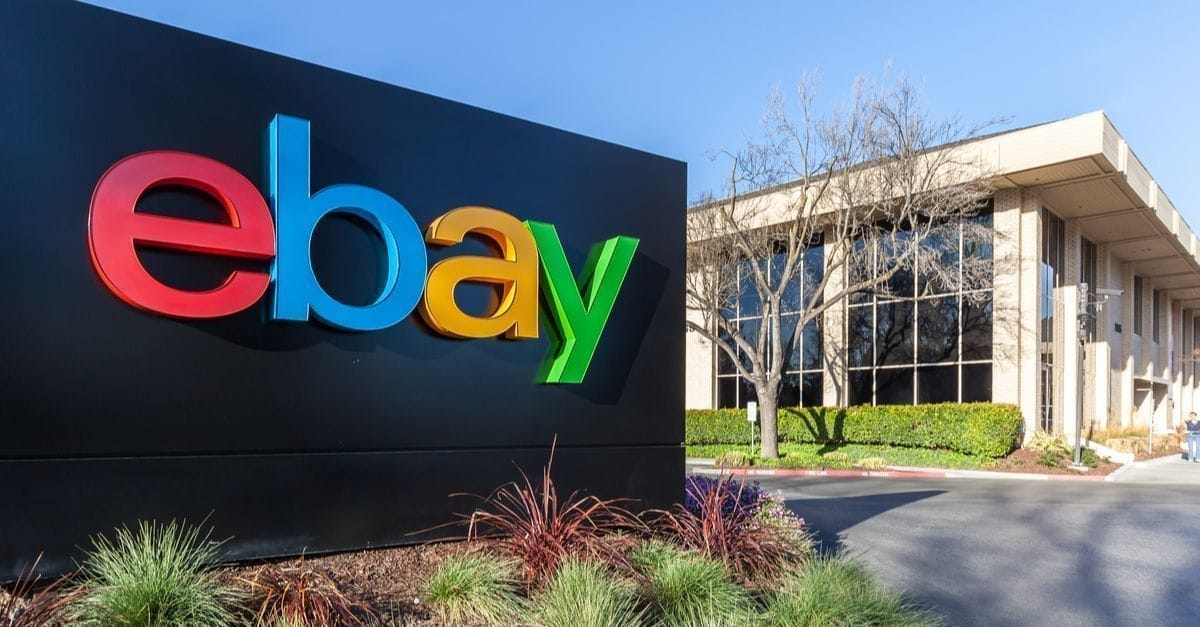
That leaves eBay in a position where they may have neither the technical resources and talent or innovative leadership needed to implement the blockchain technology for user authentication and authorization proposed by this patent.
Even if they did, would users be willing to get on board with this new technology and reputational rating system?
Much of the current lack of trust in eBay as the "central authority" that this patent seeks to address has been self-inflicted over many years, which ironically may make users even more resistant to adopting new technology and "trust building" initiatives put forward by the company.
eBay has a serious transparency, trust, and communication disconnect with its seller-base in particular that will need to be solved with more human interaction, not less, if the hope to see widespread positive reaction to these proposed future uses of blockchain technology.
Would you trust the blockchain to store your personal information and create a "reputational score" to authenticate and authorize your identity and transactions on eBay? Let us know in the comments below!





